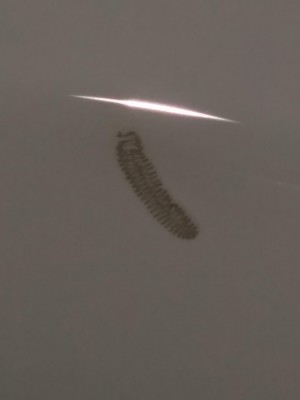When a patient presented with a worm they found in their toilet, it was a clear indication that there was something not quite right in the household. Upon examination, the worm was identified as Ascaris lumbricoides, a roundworm that commonly infects humans in developing countries. This case study explores the patient's symptoms, the worm's lifecycle and transmission, and the importance of maintaining hygienic practices in preventing such infections.

Symptoms of Ascaris Lumbricoides Infection
Ascaris lumbricoides infections are often asymptomatic, although some patients may experience symptoms such as abdominal pain, diarrhea, and vomiting when the worms migrate through the intestine. In severe cases, the worm can cause intestinal obstruction or even perforation, leading to potential life-threatening complications.
Transmission of Ascaris Lumbricoides
Ascaris lumbricoides is transmitted via the fecal-oral route, where the eggs are ingested through contaminated food, water or soil. The eggs hatch in the intestine, and the larvae migrate through the bloodstream to the lungs where they burrow into the air sacs. The larvae mature in the lungs, and the patient coughs them up, then swallows them, which allows them to re-enter the small intestine where the worms continue to mature and reproduce.
Importance of Hygienic Practices
The importance of hygienic practices in preventing Ascaris lumbricoides infections cannot be overstated. Proper handwashing after using the restroom or before eating, as well as boiling water or cooking food thoroughly, can help eliminate the risk of ingesting Ascaris lumbricoides eggs. Improved sanitation facilities, such as toilets with lift seats, can also reduce the risk of transmission by minimizing contact with fecal matter.
Conclusion
Ascaris lumbricoides infections are rare in developed countries, but they remain a significant public health concern in developing countries. The patient in this case study likely acquired the infection through ingesting contaminated soil or water. By following proper hygienic practices and sanitation measures, we can reduce the risk of transmission and prevent such infections in the future. It is essential to seek medical attention if you suspect you may have an Ascaris lumbricoides infection or any other parasitic infection. Stay safe and healthy!